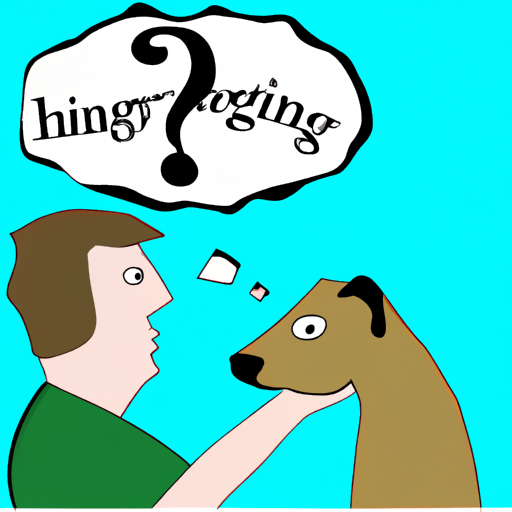Understanding Your Dog’s Behavior
As a caregiver to your furry friend, you might often find yourself wondering about their behaviors. One such puzzling behavior you might have noticed is the quivering of your dog’s mouth. While it may seem alarming at first, it’s important to note that this isn’t always a cause for concern.
Dogs communicate with us through their body language, and mouth quivering could simply be a part of their expressive repertoire. However, it could also be a sign of underlying health issues, anxiety, or excitement.
Possible Reasons for Mouth Quivering
- Cold: Just like us, dogs can shiver when they’re cold. If the temperature is low and you notice your dog’s mouth quivering, it might be time to wrap them in a warm blanket.
- Excitement or Anticipation: If your dog’s mouth quivers mainly during meal times or when you’re about to take them for a walk, it could be due to excitement or anticipation.
- Anxiety or Fear: Dogs can also quiver when they’re anxious or scared. If the quivering is accompanied by other signs of distress, it might be due to fear or anxiety.
- Health Issues: Certain health issues like dental problems, neurological disorders, or distemper can cause dogs to quiver. If you notice your dog quivering frequently, it’s best to consult a vet.
Evaluating Your Dog’s Health
The key to deciphering the cause behind your dog’s quivering mouth lies in observing their behavior and overall health. Are they eating well? Are they active and playful? Do they exhibit any signs of distress or discomfort?
| Behaviors | Possible Causes |
|---|---|
| Loss of appetite, lethargy, and other signs of discomfort | Health issues |
| Quivering during feeding times or walks | Excitement or anticipation |
| Quivering accompanied by hiding, whining, or aggression | Anxiety or fear |
Steps to Take
If your dog’s mouth quivering is accompanied by signs of distress or health issues, it’s important to take the following steps:
- Keep a record of your dog’s behavior, noting when the quivering occurs and any other unusual behaviors.
- Consult with your vet, providing them with all the information you’ve gathered.
- Follow your vet’s instructions and provide your dog with the necessary care and comfort.
FAQ
Q: Should I always be worried if my dog’s mouth is quivering?
A: Not necessarily. Dogs can quiver out of excitement, anticipation, or when they’re cold. However, if the quivering is frequent or accompanied by other signs of distress, it’s best to consult a vet.
Q: Can anxiety cause my dog’s mouth to quiver?
A: Yes, dogs can quiver when they’re anxious or scared. If you notice this behavior during thunderstorms, visits to the vet, or other stressful situations, it might be due to anxiety or fear.
Q: What health issues could cause my dog’s mouth to quiver?
A: Dental problems, neurological disorders, or distemper can cause dogs to quiver. It’s best to consult a vet if you’re concerned about your dog’s health.



